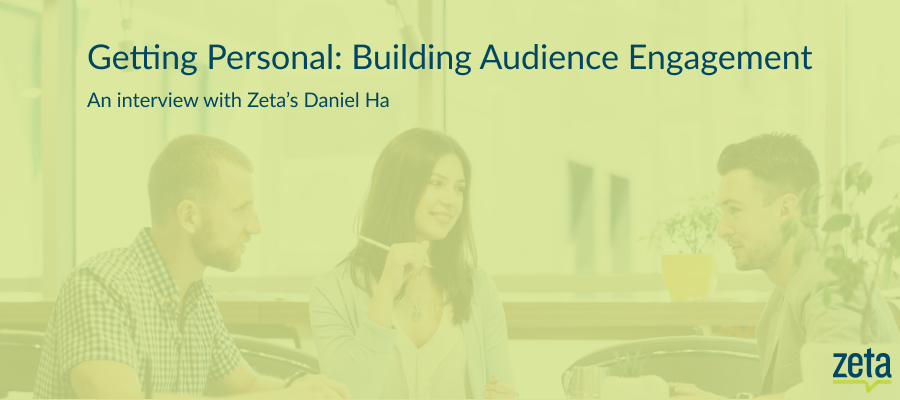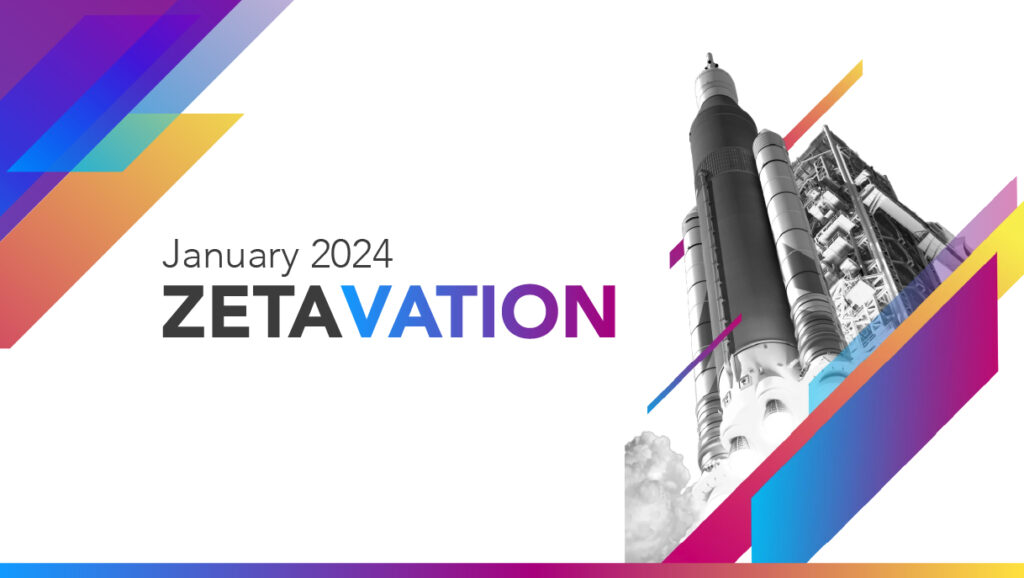
Articles | May 14, 2018 | 3 min read
Building Audience Engagement for Publishers — An Interview with Daniel Ha
Daniel Ha is president of the Disqus Division, leading the growth of the audience development platform that’s popularly used by millions of content and brand publishers. He specializes in consumer-facing product strategy and go-to-market.
Online publishers operate in an ever-shifting landscape and, often, the hardest part is simply keeping up. What continues to rapidly change is how people discover, consume, and engage with content. When publishers cannot navigate these changes fast enough, they fall behind in a way that is hard to recover.
Independent (and often smaller) publishers thrive best when the playing field is level. An example of this is how anyone can publish on the web using open, interoperable standards — and then anyone can find this content using a web browser.
In more recent years, people have been discovering and consuming content primarily through apps/platforms like Facebook and Instagram. These closed, proprietary platforms have the advantage of delivering super personalized (and really enjoyable) experiences. The result is these platforms end up controlling a lot of how a person finds and reads a publisher’s content.
Ultimately, this makes it harder for publishers to build a long-term relationship with their audiences.
Disqus is a tool for publishers that helps them focus on building their own audience engagement. We believe that the Disqus platform, and other online software like it, are critical for the long-term health of the web and how publishers exist on it.
The frenemies I’ve described are Facebook and Google. These are incredible resources and partners for publishers. However, their dominance in the industry means that almost every publisher is over-indexed on the tools and policies from both Google and Facebook. Thus, even a small adjustment made on Facebook could have devastating impact on a small publisher that cannot (or does not know how to) adapt fast enough.
Disqus is a large install base across the Internet. Its global reach allows Disqus to gather a lot of signal data that is meant to help publishers better understand and engage with their current or intended audiences.
Zeta’s new Data Cloud has tapped into this and made it something even greater. By combining these signals with Zeta’s powerful marketing tools, our new Data Cloud will extend that level of insight to marketers who are looking for better — or more cost effective — tools to find their consumers.
GDPR’s new comprehensive data law that comes into effect on May 25th was proposed to strengthen the protection of personal data, especially in light of new technologies on the Internet. At Disqus (and across Zeta), we are committed to complying with the GDPR and helping our customers navigate this potentially tricky new world.
I believe that this comes in a couple of phases. The first phase we’re making is thorough upgrades to how we’re collecting, storing, and making use of user data. We want all customers and users of Disqus/Zeta to feel safe in how we’re handling their data.
The second phase will apply everything we’ve learned about dealing with GDPR compliancy and help other publishers figure it out as well.
Many people, both publishers and consumers, are increasingly aware of their over-reliance on Facebook. The news headlines are shining a spotlight on issues around data privacy and fake news. Online publishers should consider thoughtful alternatives to services like these that they are already accustomed to using. Today, using Facebook and other platforms, acquiring a steady drip of potential customers or readers, can be fairly inexpensive to get started. But this can get pricey quickly. The best way to increase ROI is, of course, to get new users to come back again. Publishers are again turning to ways to establish a direct relationship with their readers, namely through collecting email addresses so that they can be marketed to directly again.
Q. What are the most significant challenges online publishers are faced with today?
Online publishers operate in an ever-shifting landscape and, often, the hardest part is simply keeping up. What continues to rapidly change is how people discover, consume, and engage with content. When publishers cannot navigate these changes fast enough, they fall behind in a way that is hard to recover.
Independent (and often smaller) publishers thrive best when the playing field is level. An example of this is how anyone can publish on the web using open, interoperable standards — and then anyone can find this content using a web browser.
In more recent years, people have been discovering and consuming content primarily through apps/platforms like Facebook and Instagram. These closed, proprietary platforms have the advantage of delivering super personalized (and really enjoyable) experiences. The result is these platforms end up controlling a lot of how a person finds and reads a publisher’s content.
Ultimately, this makes it harder for publishers to build a long-term relationship with their audiences.
Q. How did the Disqus solution address those challenges?
Disqus is a tool for publishers that helps them focus on building their own audience engagement. We believe that the Disqus platform, and other online software like it, are critical for the long-term health of the web and how publishers exist on it.
Q. You have mentioned that publishers and media companies have increasingly relied on “frenemies” to grow and monetize audiences. What do you mean by that? Why is it the wrong approach?
The frenemies I’ve described are Facebook and Google. These are incredible resources and partners for publishers. However, their dominance in the industry means that almost every publisher is over-indexed on the tools and policies from both Google and Facebook. Thus, even a small adjustment made on Facebook could have devastating impact on a small publisher that cannot (or does not know how to) adapt fast enough.
Q. How is the powerful combination of the Disqus solution and Zeta’s Data Cloud helping clients create deeper engagement with users?
Disqus is a large install base across the Internet. Its global reach allows Disqus to gather a lot of signal data that is meant to help publishers better understand and engage with their current or intended audiences.
Zeta’s new Data Cloud has tapped into this and made it something even greater. By combining these signals with Zeta’s powerful marketing tools, our new Data Cloud will extend that level of insight to marketers who are looking for better — or more cost effective — tools to find their consumers.
Q. With the impending GDPR deadline later this month, can you explain how Zeta/Disqus is preparing for the new regulations and why marketers should feel safe using Zeta/Disqus?
GDPR’s new comprehensive data law that comes into effect on May 25th was proposed to strengthen the protection of personal data, especially in light of new technologies on the Internet. At Disqus (and across Zeta), we are committed to complying with the GDPR and helping our customers navigate this potentially tricky new world.
I believe that this comes in a couple of phases. The first phase we’re making is thorough upgrades to how we’re collecting, storing, and making use of user data. We want all customers and users of Disqus/Zeta to feel safe in how we’re handling their data.
The second phase will apply everything we’ve learned about dealing with GDPR compliancy and help other publishers figure it out as well.
Q. What one thing should online publishers be considering in 2018 to increase brand awareness and increase ROI?
Many people, both publishers and consumers, are increasingly aware of their over-reliance on Facebook. The news headlines are shining a spotlight on issues around data privacy and fake news. Online publishers should consider thoughtful alternatives to services like these that they are already accustomed to using. Today, using Facebook and other platforms, acquiring a steady drip of potential customers or readers, can be fairly inexpensive to get started. But this can get pricey quickly. The best way to increase ROI is, of course, to get new users to come back again. Publishers are again turning to ways to establish a direct relationship with their readers, namely through collecting email addresses so that they can be marketed to directly again.


